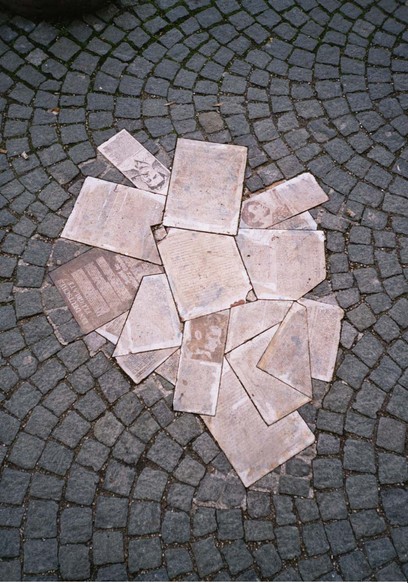|
The Breadcrumbs widget will appear here on the published site.
Die Weiße RoseIt was 1942. Sophie Scholl was a student at the University of Munich when Adolf Hitler brought Germany to ruin. She, like most Germans, was optimistic about Hitler’s leadership, clinging to him to lead the nation out of a horrendous economic collapse and international scorn left over from the First World War. She joined the Hitler Youth as many German teens did. Though as the war progressed, there were signs that Hitler was not a savior of the German states. Her brother Hans briefly served on the front lines and witnessed the horrific treatment of those considered inferior to Hitler’s standards, confirming their father’s suspicions of Hitler’s insidious intentions. Sophie, Hans, friends, and their psychology/philosophy professor formed Die Weiβe Rose, or The White Rose, an intellectually based, peaceful resistance movement against Hitler’s regime. Their campaign consisted of essays written as leaflets and distributed anonymously throughout the region.
The first leaflet appeared around the University of Munich. The leaflet criticized and called for Germans to stand against the tyranny of Hitler, criticizing the actions that Hitler had taken during the war. The leaflet references concentration camps and correctly predicts the outcome of the German legacy immediately following the war:
It is certain today every honest German is ashamed of his government. Who among us has any conception of the dimensions of shame that will befall us and our children when one day the veil has fallen from our eyes and the most horrible of crimes – crimes that indefinitely outdistance every human measure – reach the light of day? The words were shocking, and the first instance of blatant backlash against Hitler’s authority. The Gestapo were baffled as copies of the leaflets began showing up in the mail. Students at the University of Hamburg also began joining in the efforts, copying and mailing out more leaflets across Germany. The leaflets were left outside of lecture halls so that students would see them as they walked out of class along with telephone booths and on the ground. The White Rose exhibited true nationalism, reminding the public of the glory that Germans once had. Besides the obvious objective of resisting fascism and Hitler, the leaflets were also aimed towards reviving the cultural and intellectual pride in Germany, often quoting Goethe (the “German Shakespeare”) among other significant German figures. The leaflet refers to Goethe’s views of Germans as a “tragic people,” but then goes on to describe then modern Germans as “spineless [and a] herd of hangers-on.” Sophie was a devout Lutheran, and other members of The White Rose were also particularly pious. Many Germans had ties with Catholicism and Lutheranism, and Sophie’s boldness was heavily driven by her faith. Prior to her death, Sophie often laced her urgent conversations with family with optimistic valor. Her speech, like the wording in the leaflets, was highly descriptive and poetic, incorporating wisdom in her words: “Only man can be truly ugly, because he has the free will to estrange himself from this song of praise. It often seems that he'll manage to drown out this hymn with his cannon thunder, curses and blasphemy. But during this past spring it has dawned upon me that he won't be able to do this. And so I want to try and throw myself on the side of the victor.” The faith of all of the members appeared in their arguments against the soulless regime, comparing their fellow Germans to nothing more than will-less animals: If the German people are already so corrupted and spiritually crushed that they do not raise a hand, frivolously trusting in a questionable faith in lawful order in history; if they surrender man’s highest principle, that which raises him above all other God’s creatures, his free will; if they will abandon the will to take decisive action and turn the wheel of history and thus subject it to their own rational decision; if they are so devoid of all individuality, have already gone so far along the road toward turning into a spiritless and cowardly mass – then yes, they deserve their downfall. As conditions worsened, more leaflets were hastily distributed. Unfortunately, Sophie, Hans, and friend Christoph Probst were arrested in 1943 after a janitor at the university witnessed Sophie throwing the leaflets from the second floor of the atrium. On February 22nd, 1943, Sophie Scholl, Hans Scholl, and Christoph Probst were executed by guillotine. After their execution, copies of the final leaflet were copied and dropped from planes all across Europe. Sophie’s sister Inge wrote the story of her siblings’ movement in her book The White Rose. In 2005, the story snagged the Academy Award for Best Foreign Film in Sophie Scholl – The Final Days. Sophie’s acts are now considered courageous throughout Germany and the University of Munich has a square dedicated to The White Rose. Many would think that Sophie is an extraordinary woman. And she is. But what is so extraordinary is that a typical young woman dared to make a change. In today’s time, “ordinary” women such as Malala Yousafzai have stepped up to fight for their own causes. I have heard plenty express their ideas and desires for a better future, but never take initiative because they believe they are “too young.” But the only requirement is to take initiative, no matter when, what, or how old you are, and start a movement…just as Sophie told the court while deciding her fate: “Somebody, after all, had to make a start. What we wrote and said is also believed by many others. They just don't dare express themselves as we did.”
#Real #SophieScholl #TheWhiteRose #Nazis #GermanHistory #NationalWomensMonth
Visit our shop and subscribe. Sponsor us. Submit and become a contributor. Like us on Facebook and follow us on Twitter.
CommentsComments are closed.
|
|










